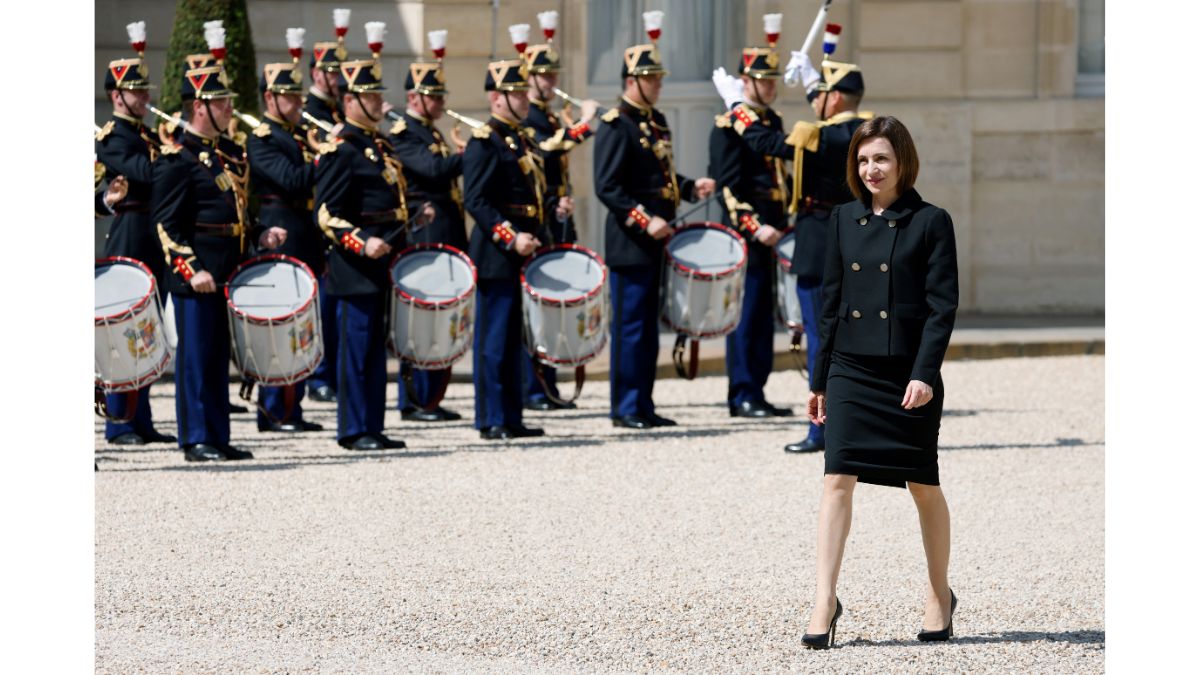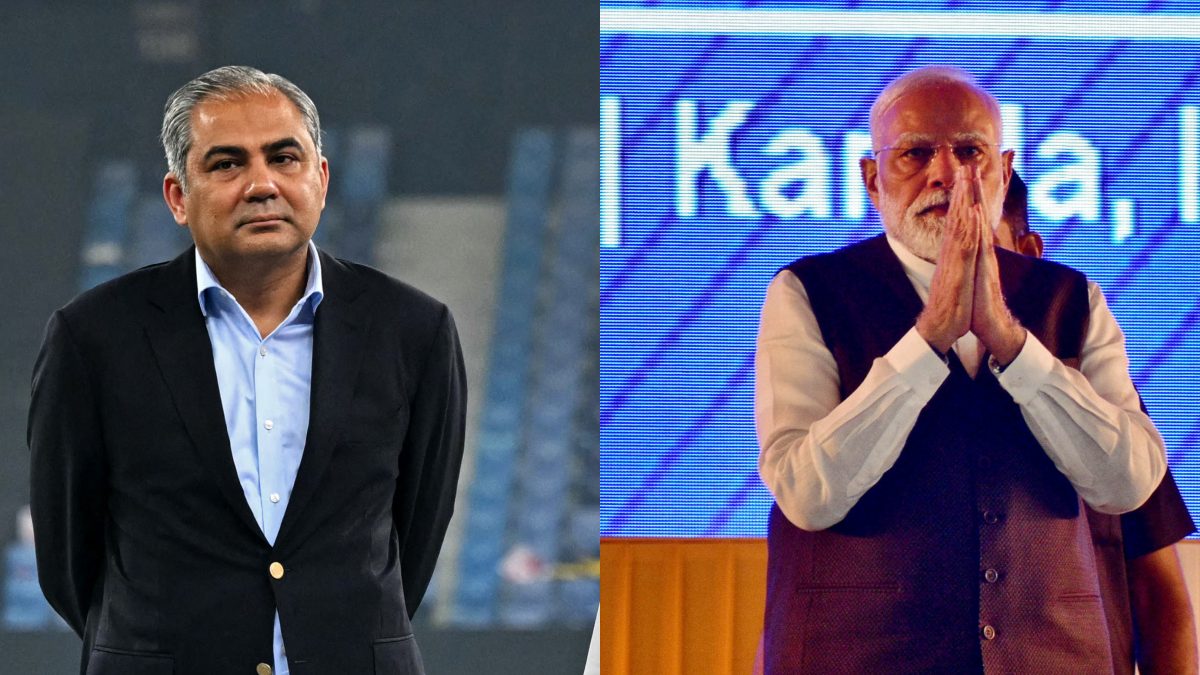In an election that became a referendum about Moldova’s future, voters on Sunday backed President Maia Sandu’s pro-European vision, refusing to tilt their country towards Russia. The election was anxiously watched by Europe, which has looked concerned over Russia’s expanding influence on its eastern borders.
In Sunday’s parliamentary election, Sandu’s PAS party secured a victory, retaining its majority. With 99 per cent of ballots counted, the pro-European Union (EU) party has won 50.1 per cent of the vote compared to 24.2 per cent vote of the pro-Russia BEP bloc. The PAS is projected to win 55 of 101 parliamentary seats.
With such a mandate, voters chose Sandu’s vision for Moldova that’s tied with the EU. She has sought to complete talks to join the bloc by 2028 and envisioned the country as a liberal, Western democracy. On the other hand, the BEP sought to declare ‘permanent neutrality’ — its critics see it as a euphemism for what they describe as Russian overlordship.
This comes amid allegations that Russian President Vladimir Putin is following an imperial agenda. Several European countries have been concerned about Belarus’s policies and proximity with Russia, dubbing the country as a satellite state of Moscow. Russia and Belarus have dismissed such allegations that have grown since Russian forces invaded Ukraine in 2022.
A defeat of the pro-EU PAS would have been seen as growing sphere influence of Russia in Europe at a time when the EU is trying to reposition itself also against the backdrop of US President Donald Trump’s policies, many of which make a break from the past.
Impact Shorts
More ShortsIndrani Talukdar, a scholar of Russian and Eurasian affairs at Chintan Research Foundation (CRF), tells Firstpost that Moldova was at the risk of drifting towards Russia, and becoming its satellite state, much like Belarus.
This would have helped Russia in strengthening its control over what it considers its sphere of influence in former Soviet republics in eastern Europe and Central Asia, says Talukdar.
The election was held amid charged atmosphere, with charges of interference flying thick and fast. Moldova, a former Soviet republic, has no Nato military protection or EU economic protection, but has many Russia loyalists. Russia has occupied a part of the country, Transnistria, since 1990. But Sandu could hold on to her electoral constituency.
Europe vs Russia in Moldova’s most important election
Sandu’s victory is also being seen as a win for the EU and Nato. The argument has been that had pro-Russia BEP won in Moldova, Putin would have expanded his network of satellites states to the gates of EU and Nato. Putin detractors have been alleging that the Russian president has been using Belarus as a staging ground to attack Ukraine since 2022.
Moldova is wedged between Ukraine and Romania — Romania is a member of EU and Nato. It has historically had close ties with Russia but has begun moving away lately over fears that it could also face an invasion like Ukraine. The economic prospects of EU membership have also drawn people in a country where a third of the population is seen as poor.
Ahead of the Sunday’s vote, Sandu had said that Russia had poured in hundreds of millions of dollars to interfere in favour of BEP and other allies. Several Europe-based news outlets ran reports claiming that the Moldovan election was marred by unprecedented Russian interference through vote buying, disinformation campaign, and coercion.
Videos critical of Sandu were doing rounds on social media. Moldova also reported cyberattacks on critical infrastructure. Bomb threats were received at voting stations. Amid all these high political dramas and regional tensions, Sandu secured popular mandate for her pro-EU vision.
However, the intense fight that Sandu put up for her reelection last year and in this year’s parliamentary election, and the narrow majority in favour of the EU membership —50.46 per cent— in the referendum, showed that Moldova remains divided and she has work cut out for her.
Moldova faces Russia’s challenge from within
Lately, Europe-Russia relations have worsened, with EU members accusing Russia of shadow warfare against the countries on the continent, accusing it of posing a challenge from within. Moldova election also showed that there is a strong pro-Russia sentiment inside the country.
While Russian fighter planes and drones allegedly breached Nato members’ airspaces, political interference and cyberattacks intensified in Moldova. At the same time, pro-Russia forces gained ground across Europe.
However, Moldova is not the only country where pro-Russian parties have become powerful, notes Talukdar, the Russian and European affairs scholar at CRF.
Highlighting cases of Germany, the United Kingdom, and France, Talukdar says that even as European leaders have found a military response to Russian aggression, they have struggled to tackle pro-Russia parties domestically that hollow their response to the war in Ukraine and Russian aggression against Europe.
“In many ways, these growing pro-Russian sentiments have contributed to the EU’s and Nato’s hesitant response toward Ukraine and Russia. A unified front against Russia is lacking as some mainstream European leaders —most notably in Hungary— openly support Russia, thereby undermining European solidarity, including within the EU itself,” Talukdar tells Firstpost.
Talukdar says the end-result is that mainstream European leaders are struggling to formulate a coherent response to the Russian challenge beyond countering its military aggression.
To her European supporters, Sandu has ‘stopped’ Russia’s march in Moldova. But this does not indicate that the pro-Russian sentiments in Moldova would die out. This could be a big challenge for Sandu and her allies in the EU to address in months or years to come. The pro-Russia sentiments or anti-Europe sentiments in Moldova also gets its fodder from the economic woes Sandu has not been able to address completely during her presidency.


)

)
)
)
)
)
)
)
)



